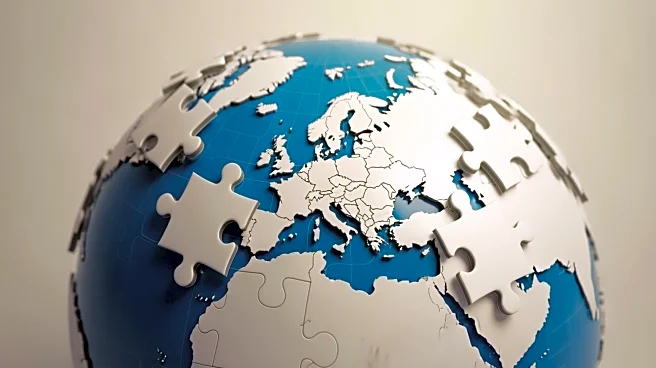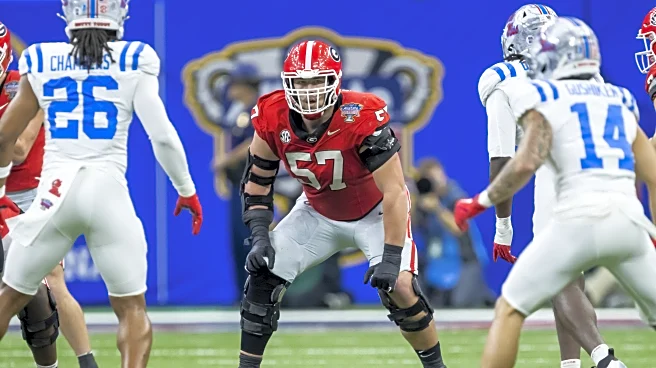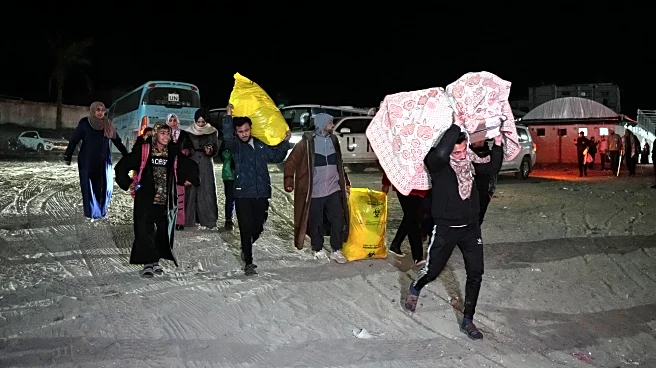What's Happening?
European leaders, alongside Ukraine's President Volodymyr Zelensky, have expressed support for U.S. President Donald Trump's proposal to freeze the current front line in Ukraine as a starting point for peace negotiations. This stance is backed by a statement
from 11 leaders, including UK Prime Minister Keir Starmer. However, Russian Foreign Minister Sergei Lavrov has dismissed the idea, emphasizing the need for addressing the 'root causes of the conflict,' which includes demands for recognition of Russian sovereignty over the Donbas and the demilitarization of Ukraine. The Kremlin has downplayed expectations of an imminent meeting between President Trump and President Putin.
Why It's Important?
The support from European leaders for Trump's proposal reflects a significant alignment in international efforts to seek a resolution to the Ukraine conflict. However, Russia's rejection highlights the ongoing challenges in achieving peace, as Moscow's demands remain a non-starter for Kyiv and its European partners. The situation underscores the geopolitical tensions and the complexities of diplomatic negotiations, impacting international relations and security dynamics in the region. The potential for direct talks between Trump and Putin could influence future diplomatic strategies and international alliances.
What's Next?
President Trump is planning direct talks with President Putin in Budapest, although the date for a preparatory meeting between U.S. Secretary of State Marco Rubio and Lavrov is uncertain. The outcome of these discussions could shape future diplomatic efforts and influence the trajectory of the conflict. Stakeholders, including political leaders and international organizations, will be closely monitoring developments, as any agreements could have significant implications for regional stability and international relations.














